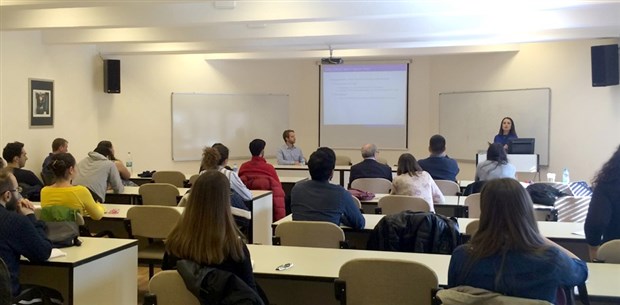Last week, on February 4, the Department of Political Science and Public Administration organized a talk on “Terrorism and the Fate of Dictators.”
Given by Deniz Aksoy, associate research scholar in the Department of Politics at Princeton University, and David Carter, assistant professor in the same department, the talk focused on the influence of terrorism on incumbent dictators.
The speakers began by providing some background on scholarship to date concerning this topic. They noted that although the vast majority of empirical work on terrorism suggests that dictatorships are relatively “safe” from this threat, recent work demonstrates that not all dictators are equally unlikely to experience significant amounts of terrorism. Yet despite evidence that some dictators in fact face significant amounts of terrorist violence, there is little work exploring the influence that terrorist campaigns have on dictators.
The talk outlined several competing ideas as to whether experiencing terrorism can be helpful or harmful to dictators. Citing their own work, the speakers contended that terrorist incidents influence the likelihood of successful military coups, which remove incumbent dictators from office. However, they stated, terrorism is associated only with coups that “shuffle” the leadership but leave the regime intact; it is not associated with more severe “regime change” coups.

